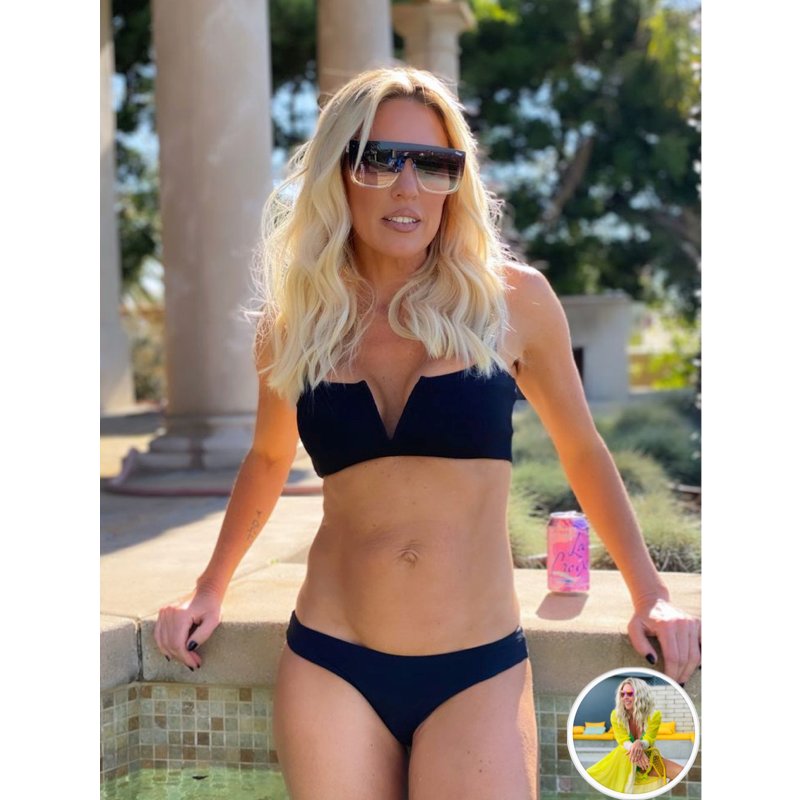
Life at 60 and beyond is a unique chapter filled with wisdom and the potential for tremendous personal growth. Yet, it comes with its own set of challenges.
We’re experiencing all kinds of loss unique to this life stage – aging bodies, cherished dreams, careers, the illness and death of loved ones (human and animal), estrangement from adult children, relationship endings, and declining health – to name but a few possibilities.
And, we’re often living in the emotional liminal spaces that tend to accompany life transitions.
Maybe, like many women these days, you’re thinking about shifting from retirement to reinvention but don’t know where to start. Or perhaps you have retired, but your “life of leisure” isn’t as enjoyable or satisfying as you thought it would be.
Plus, it’s all taking place against a backdrop of growing older as a woman in an anti-aging culture. Which is no walk in the park.
Let’s be honest. It can be stressful.
My life transitions over the last 10 years have provided plenty of growth opportunities – my husband’s retirement, his chronic leukemia and other health issues, a highly stressful move followed by the COVID-19 pandemic, and moving my parents into assisted living last year.
Today, I’m researching long-term care facilities for my parents, as they have both been officially diagnosed with dementia and are deteriorating fast. It’s heartbreaking.
As we navigate this stage of life, a resilient spirit is a valuable asset, empowering us to weather life’s storms and thrive. That’s why I’m constantly researching ways to cultivate resilience so we can live our “third act” with some measure of grace, joy, and ever-deepening purpose.
According to luminaries in psychology and some of my favorite teachers, here are 10 proven ways to flourish.
Practice Self-Compassion
Acknowledge that perfection is unattainable and be kind to yourself in times of struggle. Treat yourself like you would treat a good friend.
Researcher Kristin Neff, Ph.D., is recognized as one of the most influential scholars in the field of psychology. Her latest book, Fierce Self-Compassion, shows women how to balance tender self-acceptance with fierce action to claim their power.
Along with her colleague Dr. Chris Germer, Dr. Neff co-founded the nonprofit Center for Mindful Self-Compassion (CMSC) in 2015. It’s a tremendous resource, and its purpose is defined as “to alleviate human suffering and to improve the collective wellbeing of our world through the practice of self-compassion.”
Embrace Lifelong Learning
Foster adaptability, curiosity, and a growth mindset. Learn new skills, explore diverse interests, and stay intellectually engaged.
After years of dedicated research, the esteemed psychologist Carol S. Dweck, Ph.D. from Stanford University, unveiled a revolutionary concept: the influence of mindset. Her insightful work illuminates how we think about our skills and capabilities and impacts our achievements in nearly every facet of life.
People who harbor a fixed mindset are less likely to thrive compared to those embracing a growth mindset, recognizing that talents can be nurtured and expanded. Learn more in the updated version of Dr. Dweck’s book, Mindset: The New Psychology of Success.
Build a Supportive Network
Surround yourself with a diverse, supportive network of friends, family, and mentors. A robust support system provides emotional sustenance during difficult times and promotes personal empowerment.
Research professor and multiple New York Times best-selling author Brené Brown, Ph.D., wrote, “If we want to fully experience love and belonging, we must believe that we are worthy of love and belonging.” In her book, The Gifts of Imperfection, she provides 10 guideposts to wholehearted living, showing us how to choose authenticity and worthiness.
Also, science shows platonic friendships are crucial to shaping who we are and becoming our happiest selves. In her recent book, psychologist Marisa Franco, Ph.D., provides a clear and actionable blueprint for forging solid and lasting connections with others using the insights of attachment theory. Read Platonic: How the Science of Attachment Can Help You Make – and Keep – Friends to learn how.
Nurture Holistic Wellbeing
The path to wellbeing is not one-size-fits-all. We all have unique journeys, experiences, and challenges that shape our lives. Our biology, personality, and environment determine what wellbeing means to us individually.
A holistic approach includes physical, mental, emotional, and spiritual health and is essential for resilience. Hormone management, exercise, nutrition for brain health, sleep, and mindset contribute to a solid foundation for facing challenges.
New York Times bestselling author of The Female Brain and neuropsychiatrist Louann Brizendine, MD, is always on the cutting edge of scientific research into the female experience.
In her most recent book, she writes about how, in menopause, women’s brains are reshaped for the better in a way that creates new power, a bracing clarity, and a laser-like sense of purpose if you know how to seize it.
Read The Upgrade: How the Female Brain Gets Stronger and Better in Midlife and Beyond to learn more.
Cultivate Emotional Fitness
We experience emotions our entire lives, but emotional fitness is not something we are born with. Our parents and caretakers are the first guides who show us how our emotions work and what to do with them. When we find it challenging to deal with our emotions once we’ve reached adulthood, it may be because we’ve never actually been taught how.
Clinical psychologist Nick Wignall, Ph.D., writes “The Friendly Mind,” a free email newsletter sharing tools, resources, and advice for improving your emotional health and wellbeing. Read his free helpful guide, The Case for Emotional Fitness.
Practice Mindfulness and Stress Reduction
Incorporate mindfulness practices into your daily routine, such as meditation, deep breathing exercises, or yoga. Mindfulness promotes calm and focus, reducing stress and providing clarity in everyday life and when facing hard times.
Wise elder Jon Kabat-Zinn, Ph.D. is professor emeritus of medicine at the University of Massachusetts Medical School, where he founded its world-renowned Mindfulness-Based Stress Reduction (MBSR) Clinic in 1979 and the Center for Mindfulness in Medicine, Health Care, and Society (CFM), in 1995.
His website is a treasure trove of resources for cultivating mindfulness. His book Wherever You Go, There You Are lives on my nightstand.
Foster a Positive Internal Narrative
Challenge negative self-talk and nurture optimism. A positive and supportive self-narrative means that you believe in yourself. You believe in your ability to recover from setbacks, adapt to change, and keep going in the face of adversity.
Martin Seligman, Ph.D., is a leading authority in positive psychology, resilience, learned helplessness, depression, optimism, and pessimism. He is also a recognized authority on interventions that prevent depression and build strength and wellbeing. He’s written 30 books, and Learned Optimism: How to Change Your Mind and Your Life is one of my favorites.
Engage in Personally Meaningful Activities
Find meaning and purpose in activities that align with your values. We can feel purposeful about things like family, friends, occupation, and health. However, volunteer work, creative pursuits, or involvement in community initiatives can also provide a sense of fulfillment, contributing to our resilience.
I highly recommend reading Man’s Search for Meaning by Austrian psychiatrist and Holocaust survivor Viktor Frankl, who founded logotherapy, a school of psychotherapy that describes a search for life’s meaning as the central human motivational force. I also recommend The Power of Meaning by Emily Esfahani Smith.
Set Realistic Goals
Establishing realistic and achievable goals promotes a sense of purpose and accomplishment. Break down larger tasks into smaller steps, celebrating milestones along the way. Goal setting builds confidence by creating a roadmap for success.
James Clear is a writer and speaker focused on habits, decision-making, and continuous improvement. He is the author of the #1 New York Times bestseller, Atomic Habits. The book has sold over 15 million copies worldwide and has been translated into over 50 languages. It’s the best book I’ve ever read on goal setting.
Seek Professional Guidance
When faced with significant life challenges, seeking professional guidance through coaching or therapy can be transformative. Helping professionals can provide tools and strategies to navigate difficulties, fostering emotional wellbeing and a resilient spirit.
Remember, embracing vulnerability and reaching out for help when needed is a sign of strength, not weakness. Read “How to Find a Great Therapist” by respected psychologist Nick Wignall.
If you’re interested in life coaching, this excellent article on the International Coaching Federation’s website explains What Coaching Is and Is Not.
Final Thoughts
The third act of life is truly the best and worst of times. And, as a friend recently reminded me, we can get stuff done and thrive despite the many obstacles life hurls our way.
So when life throws you a curveball, call on your resilience and move forward with as much grace as you can muster.
You can learn more about the books mentioned above by visiting the new How She Thrives online bookshop here.
Let’s Have a Conversation:
What life transitions have you experienced in the past decade, and how have they impacted you? How do you cope with the emotional challenges of life’s inevitable losses and transitions? Do you have any advice for growing older as a woman in an anti-aging culture?





